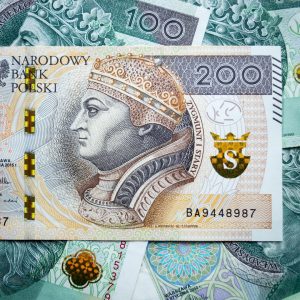Comparing Forex Brokers: Tips for Narrowing Down Your Options
When it comes to trading forex, choosing the right broker is crucial. The broker you choose will not only determine the ease and convenience of your trading experience but also impact your overall profitability. With countless forex brokers available in the market, it can be overwhelming to decide which one to go with. This article aims to provide you with some tips for narrowing down your options and finding the best forex broker for your trading needs.
1. Regulation and Security
The first and most important factor to consider when comparing forex brokers is their regulation and security. You should only trade with brokers that are regulated by reputable financial authorities. Regulation ensures that the broker operates within a set of rules and guidelines, providing you with a certain level of protection.
Look for brokers that are regulated by authorities such as the Financial Conduct Authority (FCA) in the UK, the Australian Securities and Investments Commission (ASIC), or the Securities and Exchange Commission (SEC) in the United States. These regulatory bodies have strict requirements and oversight, which helps safeguard your funds and ensure fair trading practices.
Additionally, check if the broker offers segregated client accounts. This means that your funds are kept separate from the broker’s own funds, providing an extra layer of security in case of any financial issues faced by the broker.
2. Trading Platform and Tools
The trading platform is the software that you will use to execute trades, analyze charts, and monitor your positions. A user-friendly and reliable trading platform is essential for a smooth trading experience. Before committing to a broker, ensure that their trading platform meets your requirements and preferences.
Consider factors such as the platform’s stability, ease of use, availability of technical analysis tools, and compatibility with your device (desktop, mobile, or web-based). Many brokers offer demo accounts, which allow you to test their platform and familiarize yourself with its features before depositing any real money.
3. Range of Tradable Instruments
Forex trading is not limited to just currency pairs. A good forex broker should offer a wide range of tradable instruments, including commodities, indices, stocks, and cryptocurrencies. This allows you to diversify your portfolio and take advantage of various market opportunities.
Consider the instruments you are interested in trading and check if the broker offers them. Additionally, pay attention to the broker’s spreads and commissions, as these can significantly impact your trading costs.
4. Customer Support
Reliable customer support is crucial, especially for novice traders. Look for brokers that offer multiple channels of support, such as live chat, phone, and email. Ideally, customer support should be available 24/7 to address any issues or concerns that may arise during your trading activities.
Test the responsiveness of the broker’s customer support by reaching out with any questions you may have. A quick and helpful response will give you confidence in their ability to assist you when needed.
5. Account Types and Minimum Deposit
Different brokers offer various types of trading accounts with different minimum deposit requirements. Consider your trading capital and choose a broker that offers an account type suitable for your budget. Some brokers also offer Islamic accounts, which comply with Sharia law and do not charge or pay interest.
Take note of any additional fees or charges imposed by the broker, such as withdrawal fees or inactivity fees. These costs can impact your overall profitability, especially if you are a frequent trader.
6. Educational Resources and Research Tools
A good forex broker should provide educational resources and research tools to help you improve your trading skills and make informed decisions. Look for brokers that offer educational materials, such as trading tutorials, webinars, and market analysis. Additionally, consider the availability of research tools, such as economic calendars, technical analysis tools, and real-time market news.
These resources can be invaluable in enhancing your trading knowledge and staying updated with market trends.
In conclusion, comparing forex brokers requires careful consideration of several factors. Start by ensuring the broker is regulated and offers a secure trading environment. Evaluate their trading platform, available instruments, customer support, and account types. Finally, consider the educational resources and research tools they provide. By taking these factors into account, you can narrow down your options and find the best forex broker that suits your trading needs and preferences.





